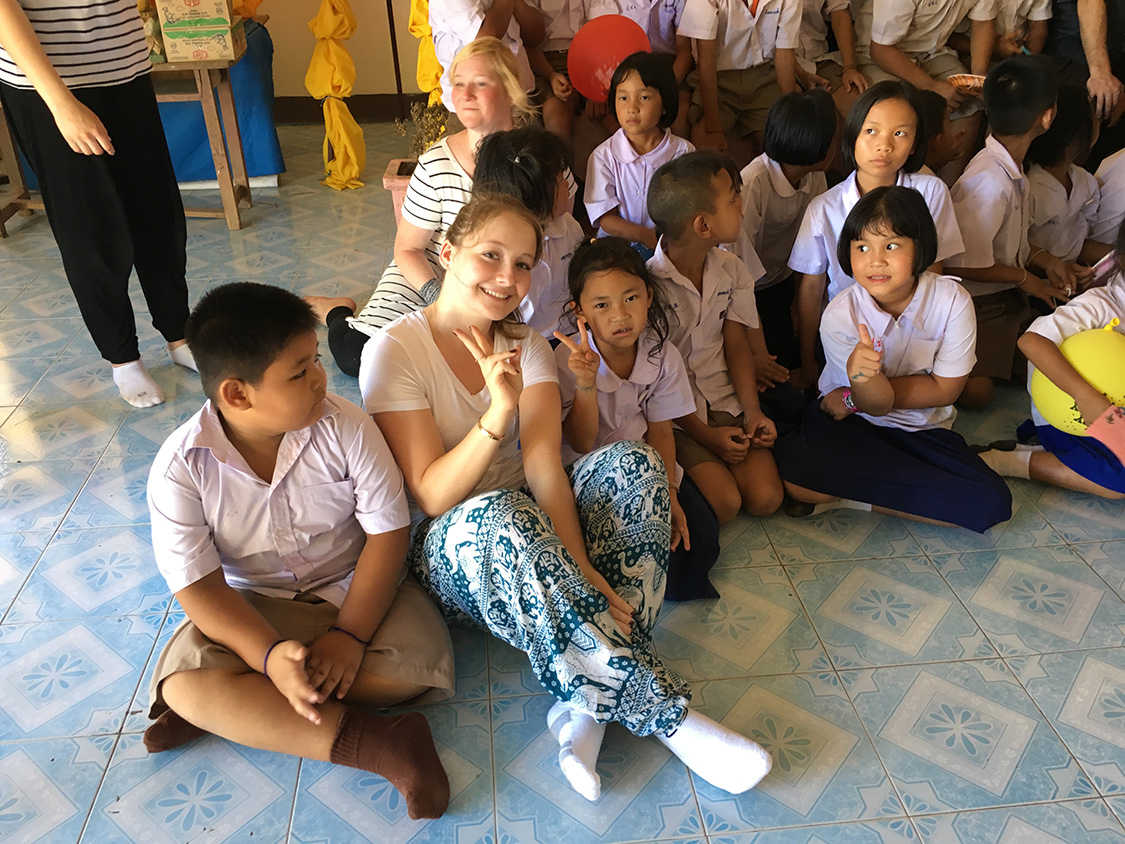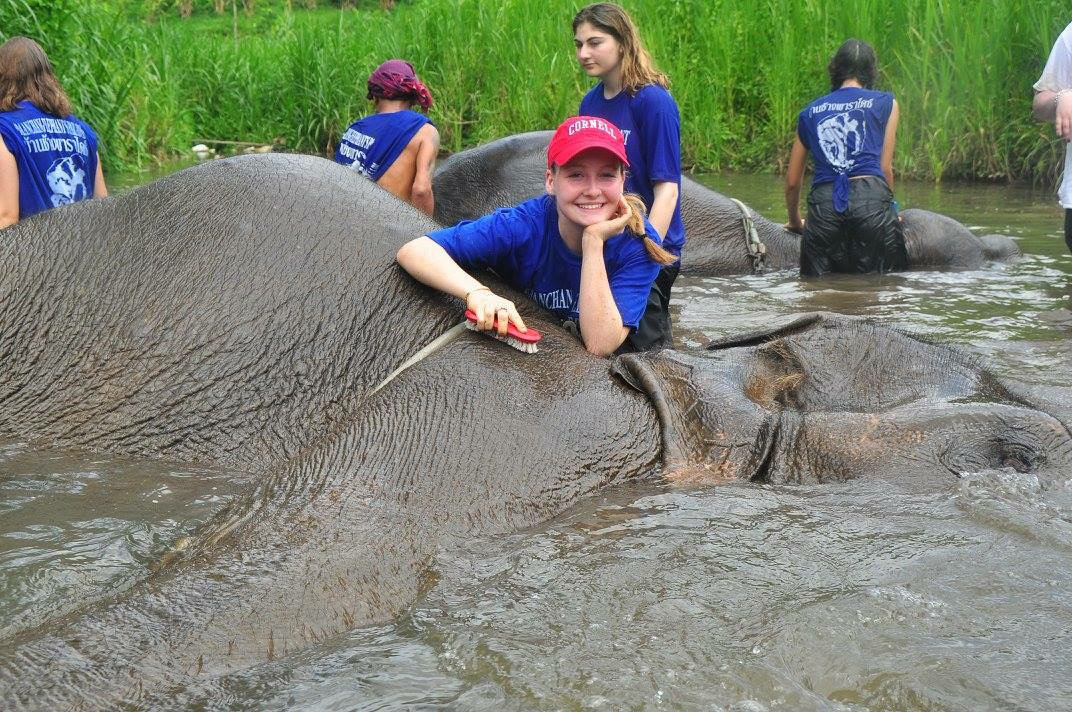Education is key to ending sex trafficking, student says
By Kathy Hovis


Sofia Aumann ’19 could have felt completely overwhelmed as a high school freshman when she uncovered the complicated issues behind human sex trafficking as she worked on a research project.
Instead, she set out to do something about it and focused her efforts on education, offering a tutoring and mentoring program for underresourced schools in her Florida town and becoming a high school ambassador for Half the Sky, an organization that supports schooling for girls in developing countries.
Aumann, who is considering a government major in the College of Arts and Sciences, is continuing that focus, co-chairing the education committee for Students Against Sexual Solicitation of Youth (SASSY) at Cornell. She recently returned from a 10-day trip to Thailand with Justifi, a Jewish organization that sponsors service trips, where she met with victims and worked with people combating the issue there.
“Prostitution is illegal in Thailand, but the government and law enforcement do not do anything to end it,” Aumann said. “You walk by these bars in a busy Bangkok street and see thousands of girls standing outside and inside them. … People come from all over the world to participate in buying these girls and women, and it brings so much tourism to Thailand that there is no incentive to really control it.”
Aumann’s trip solidified her belief that providing education to these girls and women is key.
“During high school, my research focused on Colombia, Nigeria and the U.S. and while [those] countries are all very different in terms of development, I realized that it all comes down to education,” she said.
In underdeveloped communities in Nigeria, parents may pull their daughters out of school and sell them to pay off debts, Aumann said. In developing countries like Colombia, girls, women and boys are sometimes lured with the promise of better opportunities or jobs in other countries and end up enslaved. In the U.S., teens drop out of school, and some fall into the hands of pimps and end up criminalized as prostitutes.
Her research showed the importance of boosting self-confidence while girls are young so they’ll stay in school and stay out of the cycle of sex trafficking, drugs and crime.
“It’s still very overwhelming working on a problem that has so many different components to it,” she said. “But there are great organizations working on projects, and there’s more education about the issue every day.”
During her trip, the group stopped in Chiang Rai, a rural town in northern Thailand where a lot of the girls who are trafficked in Bangkok or Chiang Mai are from.
“We volunteered at a school for two days teaching different English lessons,” she said. “This was just such an incredible part of the trip because these kids were so young and thirsty for learning and it was sad to know that unfortunately, a lot of them will most likely end up in the awful human trafficking cycle if they aren’t able to continue with their education.”
Now that Aumann has returned from her trip, she is working as a volunteer intern at the State Attorney’s office in Miami-Dade County, with its human trafficking task force.
“I hopefully will be interviewing victims and police as well as going to court and hearing cases,” she said. “Even doing a little thing and saving one person is worth it to me.”
Kathy Hovis is a writer for the College of Arts and Sciences.
Media Contact
Get Cornell news delivered right to your inbox.
Subscribe